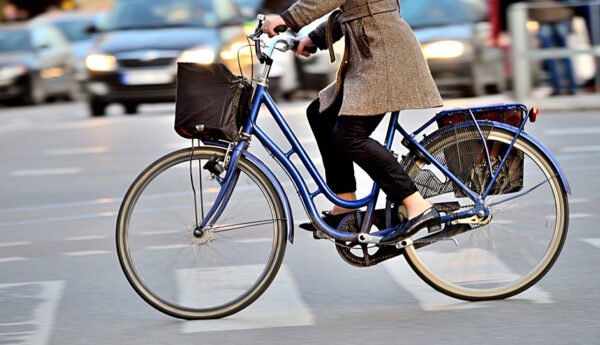
The current divorce rate in the United Kingdom sits at 42%. While a variety of factors undoubtedly contribute to this, Umea University in Sweden has revealed that marriages in which one partner must commute for 45 minutes or more are 40% more likely to end in divorce. With current statistics from Swytch – the UK’s leading e-bike conversion kit company – finding that 19% of Brits currently say their commute to work is 60 minutes or longer, this does not bode well for the nation. However, rather than couples limiting themselves to remote jobs, the travel experts at Swytch explain how switching to an active commute – involving walking, running or cycling, for example – can mitigate the negative effects of travelling by car or public transport and help save relationships.

Exercise is a mood booster and energiser
Commuting by train, bus or car usually means bookending the day with environmental stressors such as excessive noise exposure, other commuters’ behaviours, overcrowding, and overheating. Highlighting the toll this takes on our physical and mental health, Swytch has found that 20% of Brits even say their commute is more draining than work itself.
Research has found that the swap to an active commute has been linked with feel-good hormones known as endorphins. Not only does this mean arriving home feeling positive and energised, but according to AlloHeath mood also affects communication which is essential in the maintenance of healthy relationships.
Two birds with one stone
Longer commutes have the disadvantage of reducing the amount of time available to spend with friends, spouses, hobbies, and personal relaxation. If a person has spent all day at work, 40 minutes or more commuting, and then wants to fit in a gym session, this is likely to cut into precious time spent with loved ones. An active commute allows couples to get their exercise in during the day freeing up at least an extra hour.
More money to spend on your partner
The cost of a commute can really add up. For instance, in London alone, the cost of travel cards rose by 5.9% according to TFL, with an annual travelcard from Zone 4 standing at a staggering £2,340. Whilst spending money on a significant other is not essential, it can be a nice way of showing one’s affection and appreciation. By switching to a bike or e-bike to get to work, which is already the case for 15% of Brits, there is much more room to save for a holiday or spend on gifts or dates.
Fitness and mental wellbeing
Long-term, physical exercise can boost well-being and confidence by making people feel good about their fitness and abilities. This increased level of self-love and happiness enables people to devote more positive energy to their relationship. Adding to this, according to the Centre for Diet and Activity Research, cycling to work instead of taking the bus or underground can improve mental wellness. This is in line with Swytch’s findings, who found that 48% of Brits believe their mental health has significantly improved since they began cycling or walking on a daily basis. The more satisfied a person feels with themselves, the more likely this is to translate into their relationship.
Moreover, the positive impact of physical activity on mental health extends beyond the individual to encompass the dynamics of romantic relationships. For couples seeking to strengthen their bond or address underlying issues, incorporating psychosexual therapy alongside regular exercise routines can be transformative. By combining the benefits of physical activity with targeted therapeutic interventions, couples can navigate challenges, enhance communication, and foster intimacy in a holistic manner. As individuals cultivate a deeper sense of self-awareness and emotional fulfillment through both exercise and counseling, they are better equipped to nurture fulfilling relationships grounded in mutual respect, trust, and shared growth.
CEO of Swytch Technology and travel expert, Oliver Montague, delves into how changing your commute could help you strengthen the relationship between you and your loved ones:
“There is now a growing body of research showing how long commutes via car or public transport can impact not only personal well-being but also relationships with spouses and family members. If reducing the length of the commute is not feasible, I would encourage considering active commuting as an alternative. By incorporating walking or cycling into your daily routine, individuals can transform their commutes into opportunities for exercise and personal well-being. The psychological and physical benefits of exercise are well-documented, including the increased production of serotonin and endorphins which can transform our mood and overall well-being, having the knock-on effect of supporting meaningful relationships and work-life balance.”
